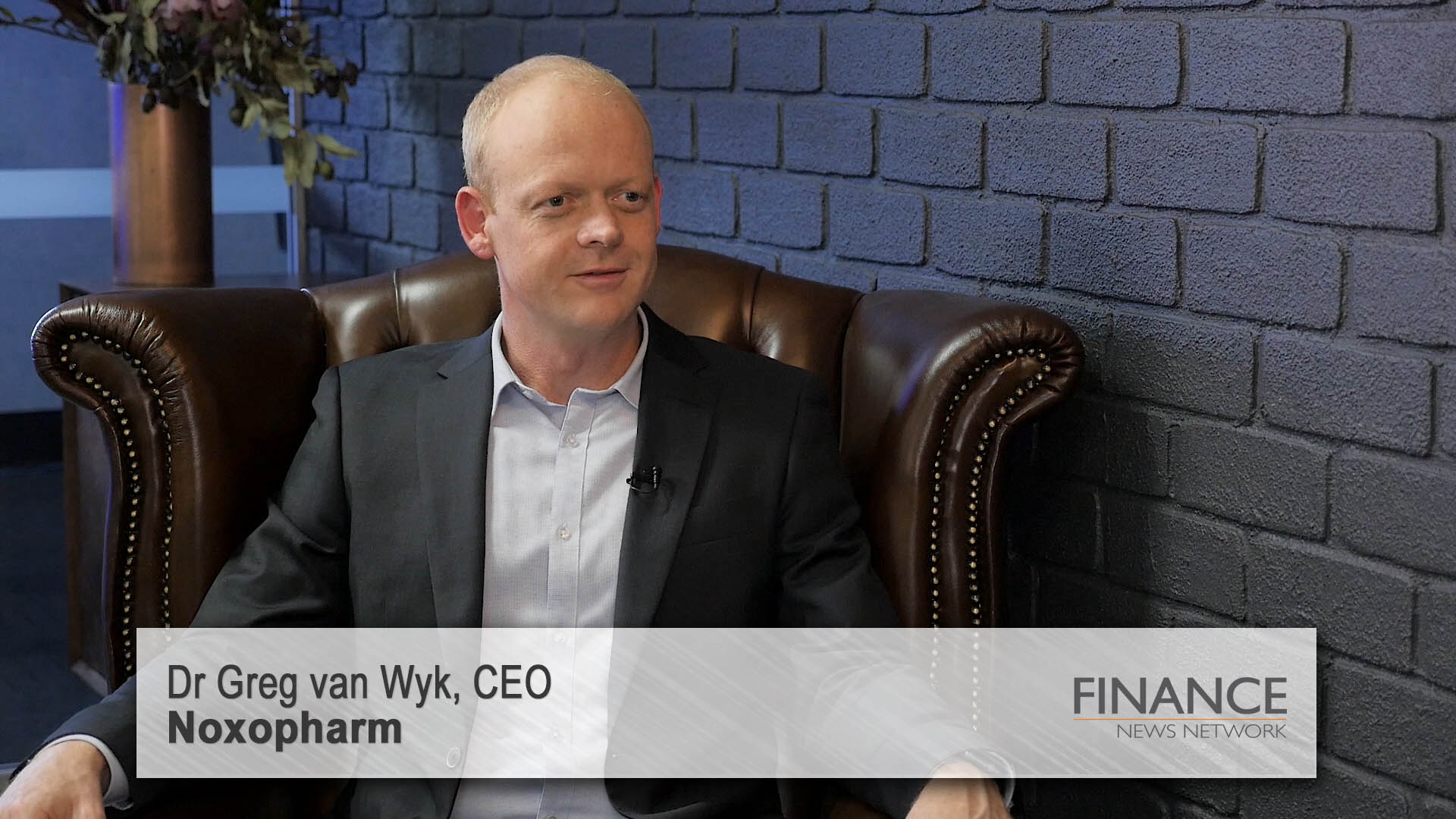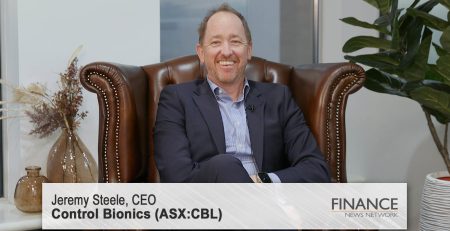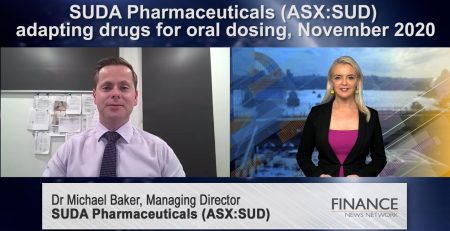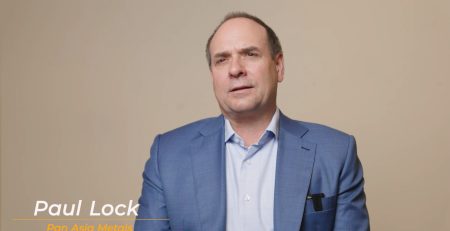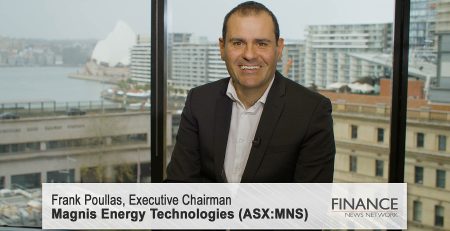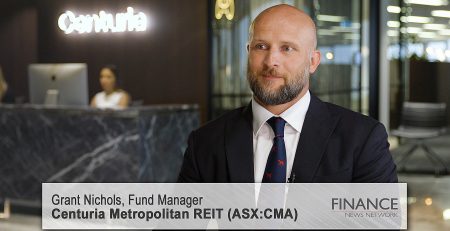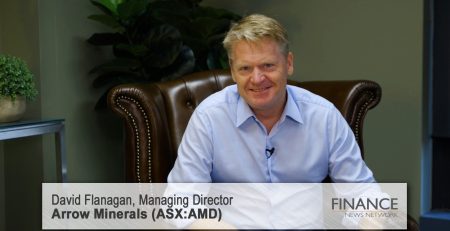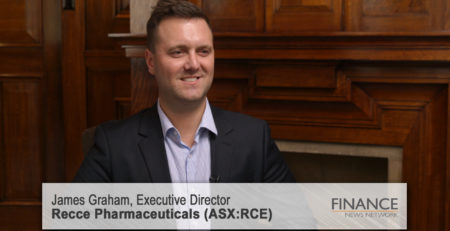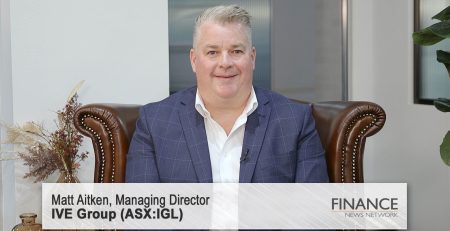Veyonda® enhances radiotherapy in prostate cancer treatment -further promising results
Noxopharm Limited (ASX:NOX) CEO Dr Greg van Wyk discusses the company's anti-prostate cancer drug Veyonda, its efficacy in prostate cancer treatment, the drug’s upside and the company’s strategy for growth.
Jessica Amir: Hi, I'm Jessica Amir for the Finance News Network and with me today from Noxopharm is CEO, Dr Greg van Wyk. Dr van Wyk, welcome back.
Dr Greg van Wyk: Hi, Jess. Thanks very much for having me on again.
Jessica Amir: Thanks for coming on by, and what a time it is Noxopharm (ASX:NOX) has just released more interim results from your DAART 1 clinical trial for fighting prostate cancer. Just tell us about the trial for those who are not really familiar.
Dr Greg van Wyk: So by way of reminder, Noxopharm is an oncology drug development company, which means that we're developing medicines for patients with cancer, and our first clinical candidate is a drug called Veyonda. It has two potential applications, the first being the enhancement of chemotherapy, and the second being enhancement of radiation therapy or radiotherapy as it's known. Just recently, we've also discovered very encouraging signals that it's probably also enhancing the effect of the immune system, enabling the body to fight back against the cancer. So today's DAART study is essentially a study of men with end stage prostate cancer, men who've run out of any treatments options. Really, the goal for these men is to keep them comfortable, and they get a low dose of background radiotherapy. In this study we're combining Veyonda with the radiotherapy to see if we can improve their outcomes. Now, bearing in mind that these patients have had their disease spread to various organs in their body, including their bones, and that can be very painful. We're very keen obviously to bring to market a treatment that can improve their pain, but we're also hoping to see benefits in terms of reductions in the tumor size as well as benefits in terms of their reductions in their prostate specific antigen, which is the blood test that many will know is commonly used to measure changes in the prostate gland.
Jessica Amir: So can you tell me a little bit more about the specifics of the data that you've released today?
Dr Greg van Wyk: Well, we're very encouraged by the results that we've seen. The side effect profile has continued to be very good in this second part of the study, and at 12 weeks of follow-up, we're seeing response rates from a prostate specific antigen level whereby we look at the proportion of patients who've had a 50 per cent reduction or more in their PSA level.
We're seeing response rates there of 55 per cent, and when we look at pain in terms of those patients that have had a 30% reduction in their pain levels, we see 45 per cent of patients having had a pain response.
Then lastly, when we look at the size of the tumours themselves, generally we're seeing stable disease, so patients are not seeing major increases in the size of their tumours, but what's really encouraging is that there are two patients that have had a dramatic reduction in the size of their tumours of greater than 30 per cent. They've also had a substantial decrease in their pain, and they've had a substantial decrease in their PSA. That's very encouraging that something is happening for these patients that is highly suggestive of a benefit of the addition of Veyonda to palliative radiation.
When we look at the 55 per cent of patients who've had a PSA response in this study and we compare that to the rates of response that we would expect to see with a low dose or palliative radiotherapy alone, there we see in the literature that response rates are generally in the region of 5-9 per cent. The 55 per cent that we're seeing in this study to back up the high response rates of 36 per cent that we saw in the first part of the study is very encouraging and leads us to believe that the addition of Veyonda to low dose radiotherapy is definitely driving a benefit for these patients.
Jessica Amir: And Greg, how does this release build and add on the data that you've already released this year?
Dr Greg van Wyk: So we'll continue to follow these patients up to 24 weeks, and you'll recall that in May this year we released the 24 week data for the first group of patients. Once we have all of the data, we'll be combining them, analysing them and then submitting the data for the whole study to a conference, an international conference as well as aiming to have the data published in a peer reviewed publication.
These peer reviewed academic conferences and publications are essential for us to be able to demonstrate the value and the credibility of these data. We're excited about the opportunity of presenting those data, because based on what we've seen so far, we believe that the data are very good, and we look forward to being able to take our DAART program into later phases of testing.
These later phases of clinical testing or essential components of investigating medications and ensuring that when medicines come to market, they're demonstrated beyond all reasonable doubt to be both efficacious as well as well tolerated with an acceptable safety profile.
Jessica Amir: And from our previous discussions and from a lot of the data that you've produced, Veyonda has a range of applications in helping other cancer treatment as well. So what are the other applications?
Dr Greg van Wyk: Well, our main aim with Veyonda is to bring to market a medicine that can enhance the effects of radiotherapy in prostate cancer across the continuum of the disease. To this extent, we have another study ongoing called the Lupin study, which is being run here at St Vincent's Hospital under the care of Professor Louise Emmett, where we're using Veyonda in combination with a novel form of radiotherapy where you inject the radiation into patients and it seeks out the prostate cancer throughout the body.
Results from the first 16 patients in the study were presented in June at a conference in the U.S., and we're very encouraged by those results as well, whereby 69 per cent of patients that achieved a PSA response rates in that study. So very encouraged by our opportunity in prostate cancer, which really is focus number one and two for us, really.
Then we're also quite excited about the opportunity to explore an area that is really undeserved, so what we call orphan indications. The particular orphan indication that we're looking at is a rare form of cancer called sarcomas or soft tissue sarcomas to be specific. These patients have a very aggressive disease, and once it metastasises or spreads through their body, it's invariably fatal. We're aiming to study Veyonda in combination with chemotherapy in these patients with the goal hopefully of being able to prolong their lives. We're in late stage of planning now for a study that we aim to run in the U.S., hopefully beginning in the first half of next year.
The benefits to patients of bringing a new therapy to market are obvious, but the benefits to the company also quite quite dramatic. If we are able to get an orphan drug designation. It brings with it certain advantages including a prolonged market exclusivity in the US, the opportunity to access grant funding as well as the opportunity to work in a more collaborative manner with the likes of the FDA.
Jessica Amir: And just lastly, Greg, once Veyonda has all the necessary ticks of approval, what impact will this have?
Dr Greg van Wyk: Well, if Veyonda continues to perform as it is in DAART-1 to date, it will be delivering the kind of outcomes that we expect to see from a lot of the chemotherapies that are currently on the market for prostate cancer, but of course without some of the side effects that can dramatically reduce patient's quality of life. So given that the overall cancer market is expected to grow to US$200 billion in 2022, that's a potentially large addressable market that we'll be operating in.
But perhaps more importantly, 350,000 men will lose their life from prostate cancer this year. The opportunity to bring something to market for even a fraction of those men is something that is incredibly motivating for the people that work at the company.
Now, beyond that, we're also aware of the market in which we're operating. Especially in cancer care medicines that are coming to market for cancer these days are often exorbitantly expensive. We appreciate the fact that there's a lot of patients out there who are unable to access these medicines, and we feel that healthcare systems are unable to keep up with the cost of these medicines. With the economics of Veyonda and the economics of how we're running our company, we believe that we have the opportunity to bring the medicine to market that is able to be used by a much broader range of patients from a range of different socioeconomic backgrounds. Now, that's a really great thing for patients, for payers, and for shareholders alike to be able to make that sort of a contribution.
So, if results continue along the same vein as those that we are seeing in DAART-1 to date, then we have a real opportunity ahead of us as we progress through development and ultimately, hopefully into the marketplace to make a significant contribution for patients for healthcare in general, as well as for shareholders.
Jessica Amir: Well, remarkable progress and wonderful results. Dr Greg van Wyk, thank you so much.
Dr Greg van Wyk: Thanks very much for having me, Jess.
Ends
Copyright 2019 – Finance News Network
Source: Finance News Network

